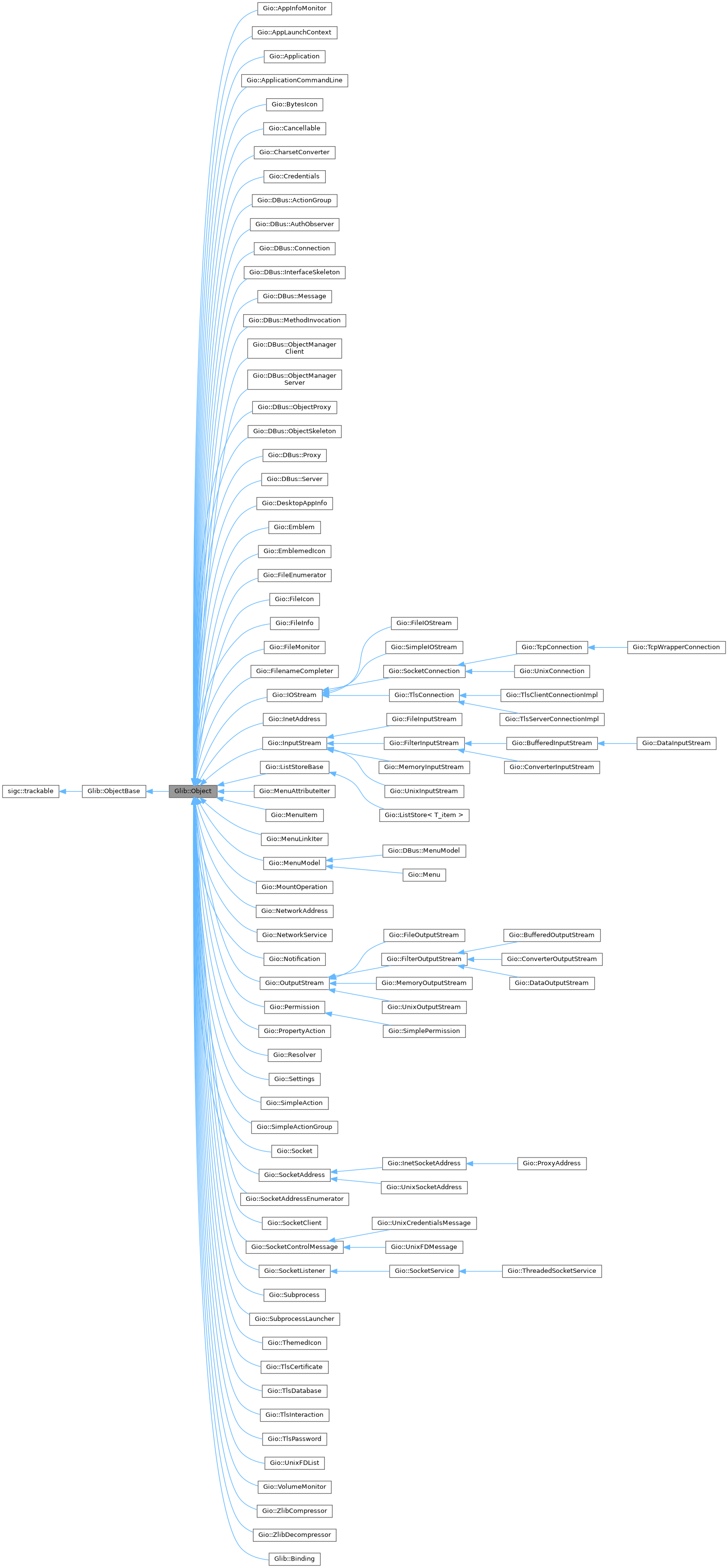|
| | Object (const Object &)=delete |
| |
| Object & | operator= (const Object &)=delete |
| |
| | Object (Object &&src) noexcept |
| |
| Object & | operator= (Object &&src) noexcept |
| |
| void * | get_data (const QueryQuark & key) |
| |
| void | set_data (const Quark & key, void *data) |
| |
| void | set_data_with_c_callback (const Quark & key, void *data, GDestroyNotify notify) |
| |
| void | set_data (const Quark & key, void *data, DestroyNotify notify) |
| | Prefer set_data_with_c_callback() with a callback with C linkage.
|
| |
| void | remove_data (const QueryQuark &quark) |
| |
| void * | steal_data (const QueryQuark &quark) |
| |
| | ObjectBase (const ObjectBase &)=delete |
| |
| ObjectBase & | operator= (const ObjectBase &)=delete |
| |
| void | set_property_value (const Glib::ustring & property_name, const Glib::ValueBase & value) |
| | You probably want to use a specific property_*() accessor method instead.
|
| |
| void | get_property_value (const Glib::ustring & property_name, Glib::ValueBase & value) const |
| | You probably want to use a specific property_*() accessor method instead.
|
| |
| template<class PropertyType > |
| void | set_property (const Glib::ustring & property_name, const PropertyType & value) |
| | You probably want to use a specific property_*() accessor method instead.
|
| |
| template<class PropertyType > |
| void | get_property (const Glib::ustring & property_name, PropertyType & value) const |
| | You probably want to use a specific property_*() accessor method instead.
|
| |
| template<class PropertyType > |
| PropertyType | get_property (const Glib::ustring & property_name) const |
| | You probably want to use a specific property_*() accessor method instead.
|
| |
| sigc::connection | connect_property_changed (const Glib::ustring & property_name, const sigc::slot< void()> &slot) |
| | You can use the signal_changed() signal of the property proxy instead.
|
| |
| sigc::connection | connect_property_changed (const Glib::ustring & property_name, sigc::slot< void()> &&slot) |
| | You can use the signal_changed() signal of the property proxy instead.
|
| |
| void | freeze_notify () |
| | Increases the freeze count on object.
|
| |
| void | thaw_notify () |
| | Reverts the effect of a previous call to freeze_notify().
|
| |
| virtual void | reference () const |
| | Increment the reference count for this object.
|
| |
| virtual void | unreference () const |
| | Decrement the reference count for this object.
|
| |
| GObject * | gobj () |
| | Provides access to the underlying C GObject.
|
| |
| const GObject * | gobj () const |
| | Provides access to the underlying C GObject.
|
| |
| GObject * | gobj_copy () const |
| | Give a ref-ed copy to someone. Use for direct struct access.
|
| |

 Public Member Functions inherited from Glib::ObjectBase
Public Member Functions inherited from Glib::ObjectBase Protected Member Functions inherited from Glib::ObjectBase
Protected Member Functions inherited from Glib::ObjectBase